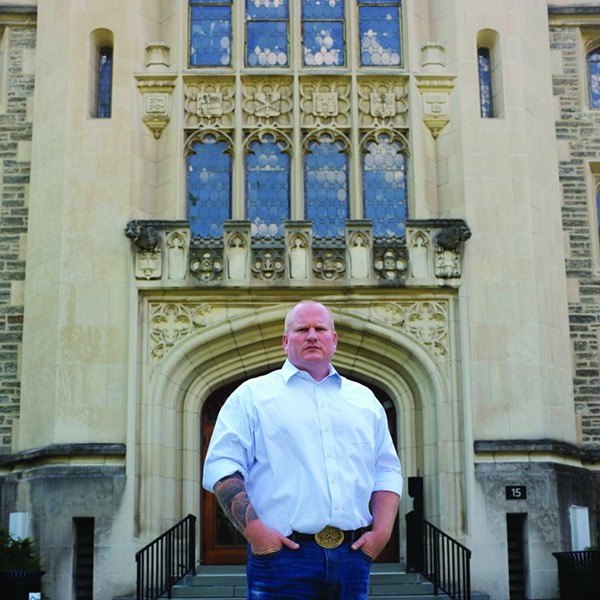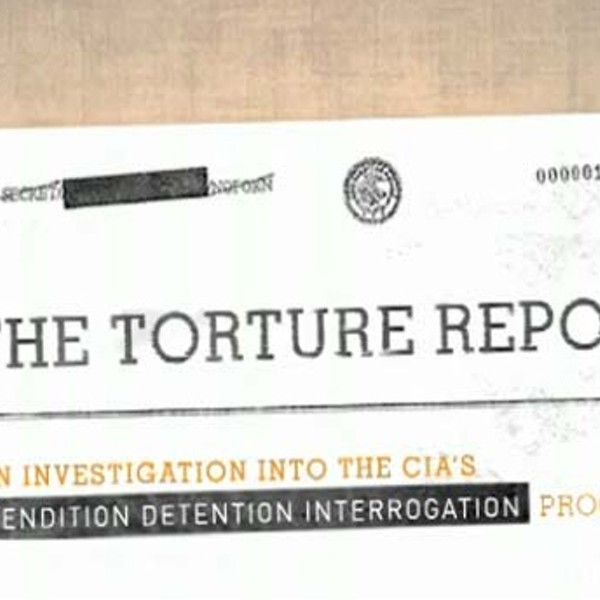But on the 7th of April, Massey himself voiced doubts to his commanding officer. “I told him I felt like we were committing genocide in Iraq, that we were doing harm to a culture…[that] we were killing lots of civilians. He said nothing and walked away. I knew my career was over.” Later, says Massey, his superior unleashed a downpour of insults: “You’re a poor leader. You’re faking it. You’re a conscien-tious objector, you’re a wimp.” Massey kept a cool face. Then the naval psychiatrist diagnosed him with post-traumatic stress disorder and depression, and the Marines offered him a desk job. “I had seven more years until retirement from the Marine Corps, but I told them I didn’t want their money anymore.”
No Better Friend, No Worse Enemy
As Massey describes the combat tactics, he reflects on the new slogan adopted by the Marines. “They’re training the next generation of soldiers with this motto: ‘No better friend, no worse enemy.’ With the new motto comes a new brainwashing. It’s like, ‘We’re gonna kill you, and we’re gonna turn around, give you candies, and bandage you up.’ One day we would go into a city and set up road blocks where civilian casualties would take place, and then the next morning we would undertake a humanitarian mission. How do we expect people who’ve seen their brothers and mothers killed to turn around and welcome you with open arms?
“I’m often asked about rules of engagement. We, the Americans, are the ones who make the rules of engagement. When it’s convenient, you can write new rules and delete old rules,” says Massey. The 23-year-old Marine quoted earlier agrees with Massey. “One day, I watched as the Marine Corps pushed the bodies of 47 Iraqis into a mass grave with a bulldozer. I don’t know if they were civilians but they looked like it because some of them were wearing dress shoes like loafers. Our sergeant was looking for bombs with metal detectors. Then he went out on the bodies and picked them for jewels and money. He also took their IDs and sold them to Marines for trophies to show off when they’d come back to the us.”
According to Massey, the new slogan encapsulates the increased desensitization now required of the Marines for the war on terror: “You’re forced to become like Dr. Jekyll and Mr. Hyde.… You have to have a psychopathic mentality. Within 30 seconds, you’re supposed to turn it off and on again and do humanitarian work and then off again.” He adds that there is something more pernicious, a subliminal component in the desensitization techniques Marines are subjected to in their three-month training camps. Somehow it’s more twisted than the simple chants that rise from the field: “Throw some candy in the school yard / watch the children gather round / Load a belt in your M-50 / mow them little bastards down!”
Spooks
Overkill seems to weigh heavy on the minds of the Marines interviewed. “Iraq was devastated in the south,” says Massey. “The closer to Baghdad, the nicer it got. [Iraqi] military compounds were deserted, tanks were barely salvageable. I saw nothing but civilian casualties and cowboys riding in, guns blazing. There really was no major battle but we had an overabundance of weaponry at our disposal and we used it.”
Lance Corporal Michael Hoffman, a 24-year-old Marine who recently returned from Iraq, corroborates this point, saying, “We used improved conventional weapons which explode in the air and contain 88 grenades each. That was all we used. I can count on my hand the times we didn’t use them.”
Much more secretive, the actions of the Special Forces—and in particular Task Force 121, created especially for the Iraq campaign by Secretary of Defense Donald Rumsfeld and composed of members of the Delta Forces, Navy Seals, and the CIA Paramilitaries, aka the “Spooks”—may be even more incriminating. Massey’s platoon carried out four raids with the Spooks and one raid with the Special Forces. “We would go into villages and stick C-4 explosives on the doors of supposed Saddam loyalists, and we would ransack their houses like the Gestapo. The Spooks would wait until we blew them up and secure the occupants inside, then they would go in. They never found anything except for large quantities of money.” What happened to the occupants? “The Spooks would put them on the floor and take over. We would leave and I don’t know what happened to them but I heard from intelligence reports that some occupants were blown up.”


















